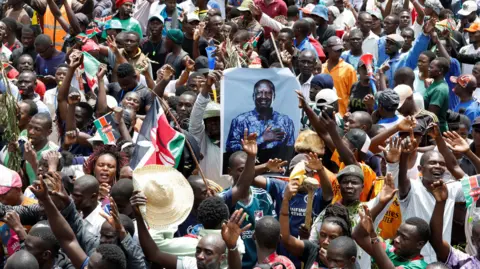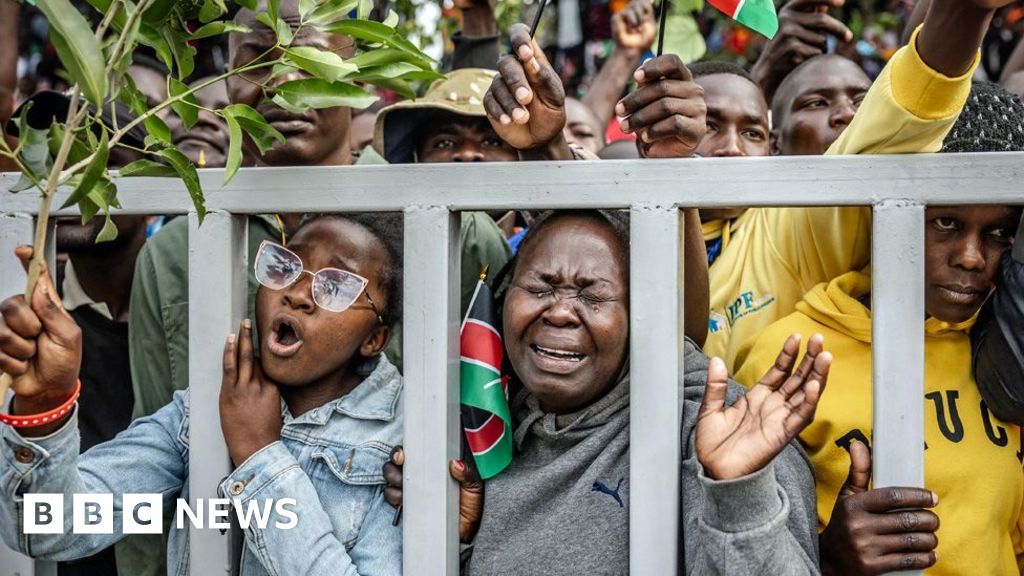Roncliffe OditBBC Africa, Kisumu
 Reuters
ReutersTens of thousands of people mourning the death of former Kenyan Prime Minister Raila Odinga have filed past his open coffin at a stadium in his home city of Kisumu – many crying out the phrase “we are orphans” in their grief.
“I have come here to mourn an icon of Africa,” one mourner Dixon Ochieng told the BBC.
The public viewing of the revered 80-year-old, who died at an Indian hospital on Wednesday, has now concluded and his body has been flown to his farm for burial.
His widow Ida has appealed to those gathered there to grieve in a calm manner to avoid the chaos that led to the deaths of at least five mourners at other events and left dozens injured at the Kisumu stadium earlier.
Odinga has a devotional following in his political heartland in the west of the country – and before dawn people, old and young, began arriving in Kisumu, which lies of the shores of Lake Victoria.
It is also the region from where Barack Obama’s Kenyan family hails and overnight the former US president posted his condolences on X, calling Odinga a “true champion of democracy”.
“A child of independence, he endured decades of struggle and sacrifice for the broader cause of freedom and self-governance in Kenya,” he said.
Odinga was the country’s main opposition leader for many years, losing five presidential campaigns, most recently three years ago. He repeatedly said he was cheated of victory, citing the manipulation of votes.
Following the bloody and disputed 2007 election, he became prime minister in a unity government.
“Time and again, I personally saw him put the interests of his country ahead of his own ambitions. Like few other leaders anywhere, he was willing to choose the path of peaceful reconciliation without compromising his core values,” Obama said.
“Through his life, Raila Odinga set an example not just for Kenyans, but across Africa and around the world.”
Mourners at Kisumu’s Jomo Kenyatta Stadium could not have agreed more – and loudly echoed these sentiments.
“I remember him for giving us democracy, for giving me our freedom – and now we can talk and we can say anything that we see is bad for us,” Jacob Omondi told the BBC about Odinga’s impact on the country during his three-decade career.
Another mourner, David Ouma, said: “One of the most important lessons I’ve learned from Raila is to be resilient, because Raila was always a very resilient leader through every election… he still rose to try again.”
Many of those packed into the stadium wore orange – the party colour of his Orange Democratic Movement – and waved branches, a traditional symbol of mourning and grief among the Luo ethnic group to which Odinga belonged.
According to the family, it was Odinga’s wish to be laid to rest within the shortest time possible, ideally within 72 hours.
A private burial will take place on Sunday at his Opondo farm in Bondo, about 60km (40 miles) west of Kisumu.
You may also be interested in:
 Getty Images/BBC
Getty Images/BBC


